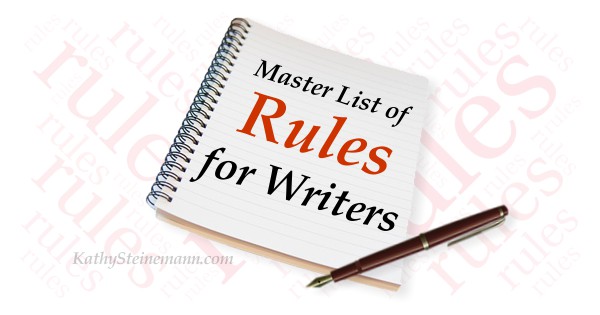
Rules … Rules … Rules
Douglas MacArthur said, “You are remembered for the rules you break.”
However, can we live — and write — without rules?
Oliver Wendell Holmes Sr. expressed his opinion: “The young man knows the rules, but the old man knows the exceptions.”
Aha: exceptions. To deviate from a rule, you must first learn it.
Why does this rule exist? Will I confuse readers if I ignore it? What will my editor say?
The Following Posts Should Help You Find Answers
- Writing Rules: When Can You Break Them? (Rules 1-6)
- Writing Rules: When Can You Break Them? (Rules 7-10)
- Writing Rules: When Can You Break Them? (Rules 11-14)
- Writing Rules: When Can You Break Them? (Rules 15-18)
- Writing Rules: When Can You Break Them? (Rules 19-22)
- Writing Rules: When Can You Break Them? (Rules 23-26)
- Be Brave: Experimental Writing Ahead: But There Are Rules
- Exclamation Points: Plague or Pleasure? Are There Rules?
- How Important Is the Rule About Not Using Passive Voice?
- Rules, Rules, Rules. 9 Writing “Rules” Examined
- Why Effective Dialogue Often Ignores Writing “Rules”
You’ll Find Other Posts as Well, About
- using said in writing
- the assault on adverbs
- cursing in creative writing
- em dashes
- ellipses
- variations between North American and British English
… and more.
Before you go, consider Therese Anne Fowler’s Advice: “Some rules are nothing but old habits that people are afraid to change.”
Find thousands of writing tips and word lists in
The Writer’s Lexicon series
and additional resources on my Facebook page.
The Writer’s Lexicon series
and additional resources on my Facebook page.
–
